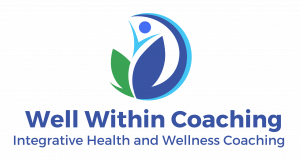Six Surprising Ways to Feel Better this Winter
Winter has always been a mixed bag for me.
I love the sense of possibility and fresh start that comes with the change in season. But I also feel a sense of loss related to the energy and ease of the warmer months.
I feel the effects of the dark, colder temperatures and pace of the season. Starting before the clocks even change, I long for the feeling of early June when the leaves are new and the sunshine is bright.
Transitions can be experienced more harshly if we’re not mindful of the impact of the environment, as well as attuned to the needs of our body-mind.
Seasonal transitions can be a powerful reminder to pause. A time for reflection to reconnect to what inspires us, and an opportunity to set new intentions.
Staying balanced, nourished and energized is important year-round, but can be more difficult during times of transition or under stress.
Here are 6 tips that can help bring greater ease to an otherwise unsettling time. Pick one or two that resonate most and practice them consistently.
- Start or keep up your exercise regimen. It’s easy to succumb to cooler weather and diminished light and forgo the activities you enjoyed during warmer months. Resist the urge to pull the covers over your head or plant yourself on the couch. Adding in more movement and activity will support your mood, energy balance and enhance circulation, preventing much of the stagnation that can occur when we hibernate.
- As in spring, winter is a great time to discover new nutrient-dense and seasonal foods that support your health. Many farmers markets are open year-round. Indoor markets are typically abundant in root vegetables for roasting or stews, numerous varieties of squash, apples, and even warming spices to enliven your holiday or tailgating dishes.
- Maintain a regular schedule. Despite the furry of the early part of the season. now is the time for a consistent eating and sleep/wake pattern. This can help you reconnect to what you need most to feel and perform your best. Just as the environment changes, your system has a particular cycle that shifts with the seasons. If your routines have been disrupted, consistency can help you feel more balanced.
- Try a new daily skin-care ritual. Consider dry-brushing your skin or a grounding self-massage after showering using an organic oil. Or simply pick up a thicker version of your favorite cream or lotion to prevent skin from drying out. Consider a new hair mask, face mask, cuticle oil, or foot scrub. Taking care of your skin is not just about appearance; it is an opportunity to nourish your entire system.
- Engage in practices to manage stress and enhance relaxation. This time of year, it’s easy to become caught up in holiday expectations. Pausing in stillness, whether for 3 breaths, or 30 minutes is a simple way to slow down and calm your body and mind. Your breath is free and always available to you. You don’t even need to fish it out of your bag, plug it in, or wait for it to boot.
- Did you know it’s just as important to be hydrated in the winter as it is in the summer? Your entire body is dependent on proper hydration to function optimally. Hydration is needed for proper digestion, detoxification, waste elimination, metabolic processes, and circulation of fluids. Energy balance, focus, mood regulation, and hormone health are even impacted. If you struggle to drink enough water, try these tips: add frozen berries, citrus slices, herbs, or cucumber. Fill a bottle to keep in your bathroom to consume right after you brush your teeth. Keep a bottle on your desk, or in your work bag if you’re on the go.
This winter, honor what you treasured about the warmer months, and visualize what you are most looking forward to. Then get centered on the here-and-now and making the most of each and every day.
If seasonal changes or the vibe of the holidays has you down and depleted, you don’t have to just ride it out. Reach out for compassionate, innovative and sustainable tips and strategies to thrive at every time of year.
Disclaimer: This post is for informational purposes only. It does not constitute medical advice, or replace treatment or intervention by a qualified medical or mental health professional.





